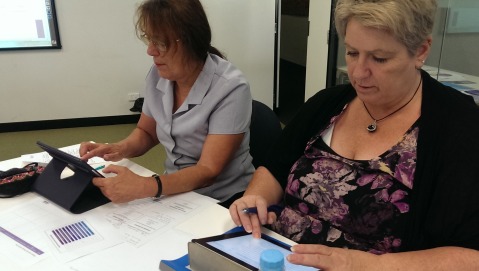Adult education takes place in the workplace through extension schools or through a school of continuing education. Other learning places include community colleges, folk high schools, colleges, universities, libraries, and lifelong learning centers.
The library has become a concept of ongoing adult education in American society.¹ Many libraries have a literacy center and others offer on-site tutoring for adults. The US Institute of Museum and Library Services helps create learning communities recognizing that, “Our achievement as individuals and our success as a democratic society depends on learning continually, adapting to change readily, and evaluating information critically."¹
Programs for adults provide one-to-one tutoring and small group sessions at the 6th grade level and below. Many adult education centers from community colleges receive grants from Welfare and Unemployment departments to help recipients gain life and work skills. Programs for ex-offenders are also offered to reintegrate them into society.
Educating adults differs from educating children in many ways. First, adults have accumulated knowledge, work experience, or military service that can add to their learning experience. Second, most adult education is voluntary and candidates are generally better motivated. Third, adults apply their knowledge in practical areas and therefore must have a reasonable expectation that the knowledge they are gaining will help them with their future goals.¹
Public school systems and community colleges usually offer evening or weekend classes to better fit the schedules of most working adults.
In the United States, the equivalent of a high-school diploma that is earned by an adult is to pass the GED examination, also known as the General Education Development exam.¹
Adult immigrants that come to English speaking countries not knowing how to speak English are usually enrolled in English as Second Language (ESL) programs.¹ The courses offered by ESL programs are key in assisting immigrants with learning the English language and also acclimatizing immigrants to the culture of the United States.
References:
1. McCook, Kathleen de la Pena (2011). Introduction to Public Librarianship, p. 50. Neal-Schuman.
Image source: Vanguard Visions
© BrainMass Inc. brainmass.com June 29, 2024, 7:33 am ad1c9bdddf